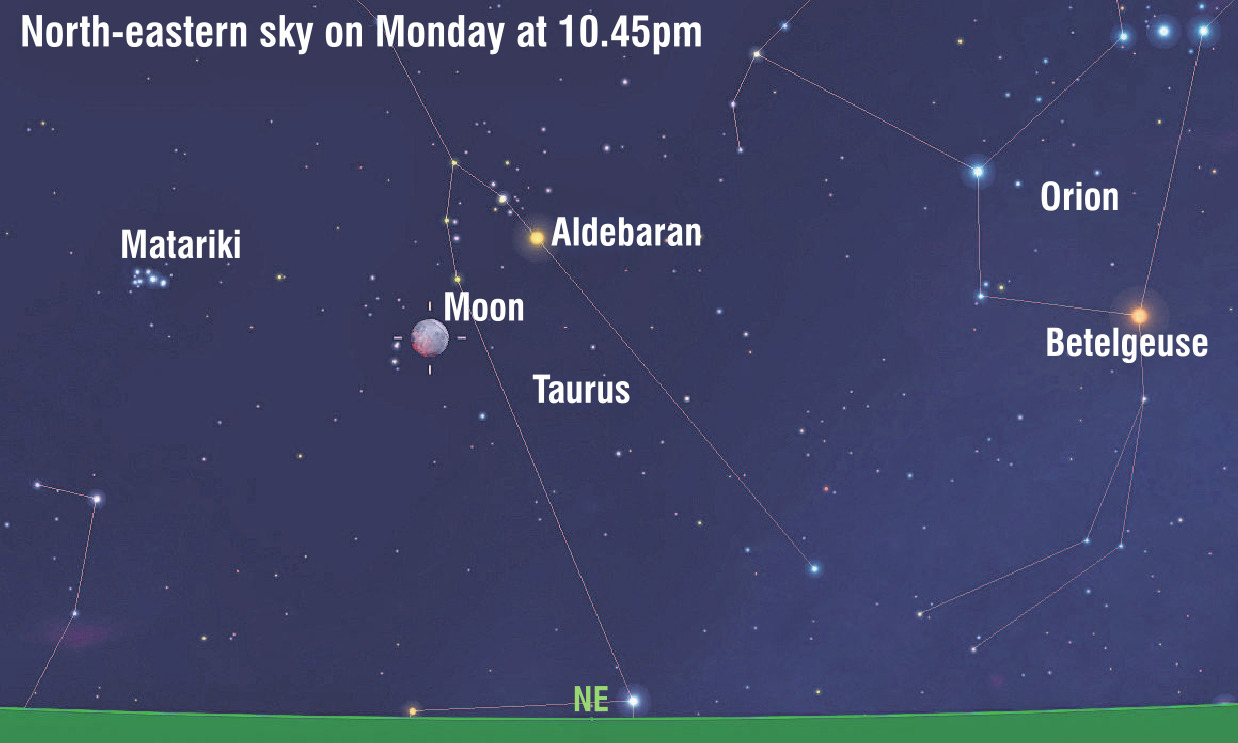

While I am pretty sure that the moon won’t be blue on Monday night, there is another good reason to take a look at it during the early part of the evening. That’s because the last of this year's four hard-to-see penumbral lunar eclipses will be in progress as the moon rises above the northeast horizon just before 9pm.
You may recall that there are three types of lunar eclipse. Total eclipses occur when the inner part of Earth’s shadow (the umbra) falls upon the moon. During a total eclipse, the moon darkens, and it can appear blood red for more than an hour.
The second variety of lunar eclipse is a partial eclipse when Earth’s dark umbra covers only part of the moon. Partial lunar eclipses are not as exciting as those that are total, but they are still easy to see.

It will be fascinating if anyone in Otago can discern a lunar dimming when the eclipse reaches its peak at 10.44pm when more than 80% of the moon will be in Earth’s outer shadow. Look for a subtle darkening of the lower left quadrant of the moon.
Photographers might try to capture the eclipse’s progress using a telephoto lens, taking exposures every few minutes.
The moon is in the constellation Taurus the Bull, between Matariki and Aldebaran. The eclipse ends at 12.53am on Tuesday. Do let me know if you manage to see it!














